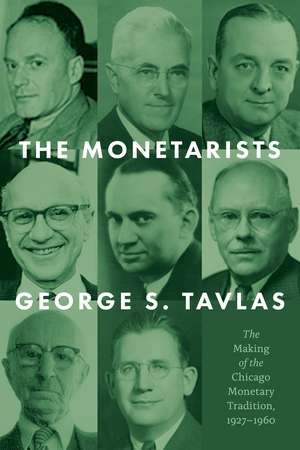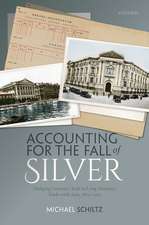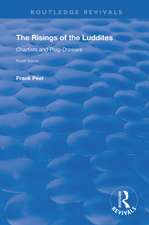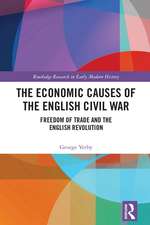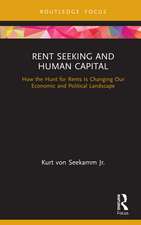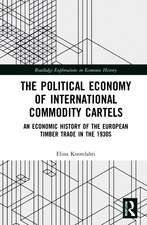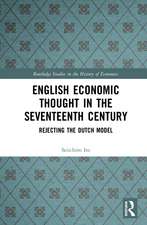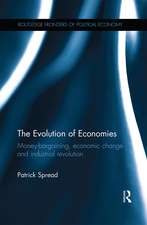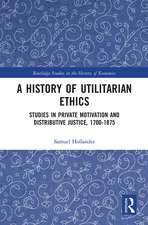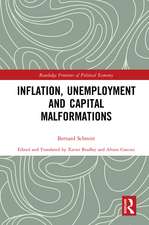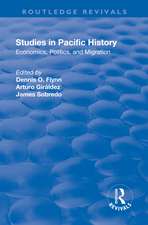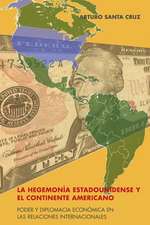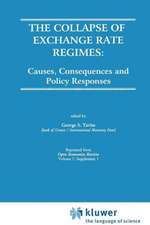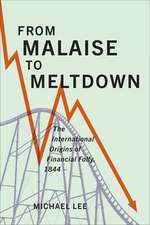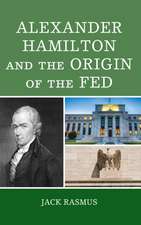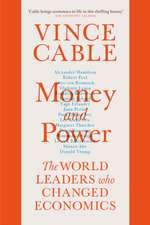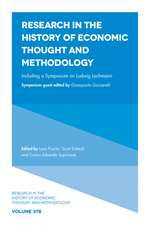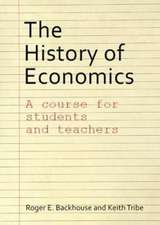The Monetarists: The Making of the Chicago Monetary Tradition, 1927–1960
Autor George S. Tavlasen Limba Engleză Hardback – iun 2023
The Chicago School of economic thought has been subject to endless generalizations—and mischaracterizations—in contemporary debate. What is often portrayed as a monolithic obsession with markets is, in fact, a nuanced set of economic theories born from decades of research and debate. The Monetarists is a deeply researched history of the monetary policies—and personalities—that codified the Chicago School of monetary thought from the 1930s through the 1960s. These policies can be characterized broadly as monetarism: the belief that prices and interest rates can be kept stable by controlling the amount of money in circulation.
As economist George S. Tavlas makes clear, these ideas were more than just the legacy of Milton Friedman; they were a tradition in theory brought forth by a crucible of minds and debates throughout campus. Through unprecedented mining of archival material, The Monetarists offers the first complete history of one of the twentieth century’s most formative intellectual periods and places. It promises to elevate our understanding of this doctrine and its origins for generations to come.
Preț: 340.56 lei
Nou
Puncte Express: 511
Preț estimativ în valută:
65.17€ • 71.01$ • 54.91£
65.17€ • 71.01$ • 54.91£
Carte disponibilă
Livrare economică 02-16 aprilie
Livrare express 19-25 martie pentru 60.07 lei
Preluare comenzi: 021 569.72.76
Specificații
ISBN-13: 9780226823188
ISBN-10: 0226823180
Pagini: 656
Ilustrații: 2 tables
Dimensiuni: 152 x 229 x 46 mm
Greutate: 1.02 kg
Ediția:First Edition
Editura: University of Chicago Press
Colecția University of Chicago Press
ISBN-10: 0226823180
Pagini: 656
Ilustrații: 2 tables
Dimensiuni: 152 x 229 x 46 mm
Greutate: 1.02 kg
Ediția:First Edition
Editura: University of Chicago Press
Colecția University of Chicago Press
Notă biografică
George S. Tavlas is alternate to the governor of the Bank of Greece for the European Central Bank Governing Council and distinguished visiting fellow at the Hoover Institution of Stanford University. His previously held positions include division chief at the International Monetary Fund, senior economist at the US Department of State, and advisor to both the World Bank and the Organization of Economic Cooperation and Development.
Cuprins
Preface
Acknowledgments
Chapter 1. The Light in the Secret Shrine
Chapter 2. The Group
Chapter 3. Controversies
Chapter 4. The “Chicago Plan”: Doctrinal Aspects
Chapter 5. Into the Academic Wilderness
Chapter 6. The Resistance
Chapter 7. The Counterattack
Chapter 8. The Monetarists
Chapter 9. Summary and Conclusions
Notes
References
Index
Acknowledgments
Chapter 1. The Light in the Secret Shrine
Chapter 2. The Group
Chapter 3. Controversies
Chapter 4. The “Chicago Plan”: Doctrinal Aspects
Chapter 5. Into the Academic Wilderness
Chapter 6. The Resistance
Chapter 7. The Counterattack
Chapter 8. The Monetarists
Chapter 9. Summary and Conclusions
Notes
References
Index
Recenzii
"[The Monetarists] should be of keenest interest to historians of economic thought and to monetary historians, for whom the careful detail, thorough citations of primary sources, and attention to the work of even the less commonly celebrated Chicagoans, will be most appreciated. But other scholars with more casual interests in these areas will find parts to enjoy. . . .I hope that macroeconomists reading the book will be inspired by the vigor of some aspects of the intellectual debate during and after the Great Depression and motivated to improve on other aspects."
"You may wonder whether reading a book about a 50-year old academic dispute is worth it. Well, the book amply repays the effort. . . .Tavlas's book is interesting and illuminating throughout and warmly recommended."
"In this superb book, George Tavlas provides a detailed chronological history of the Chicago school of monetary economics from its start in the late 1920s through the work of Milton Friedman in the 1950s and ’60s. . . . George Tavlas has written the definitive history of the Chicago monetarists. He deserves a round of applause from historians of economic thought."
"This is a magnum opus on the evolution of the monetary economics of the group of economists who were at the University of Chicago from the early to mid-twentieth century. . . . Tavlas has done an outstanding job of sorting out the intricacies of the evolution of monetarism and his book is not only a definitive history of Chicago monetarist thought, it brings out its relevance for contemporary issues."
"This a book for specialists, especially those interested in the development of the monetary theories and policies that have emanated from economists at the University of Chicago since the late 1920s. . . . its clarity of organization and simplicity make it an easy read. . . .Tavlas demonstrates that there was always a distinct Chicago view, though it shifted through time."
"[The Monetarists] is well told and challenges readers to reconsider what they think they know about monetary economics at the University of Chicago, calling into question familiar labels associated with twentieth century economics. George Tavlas teases out complexities in the history of Chicago monetary economics that are obscured by common labels, and upsets tenets of what has been considered settled historical knowledge. . . .The Monetarists is a splendid book."
"This book is a deep intellectual dive into Chicago monetary thought. The book is both original and comprehensive, drawing on a rich array of published and archival sources, and shows high standards of scholarship. The book is very rich in detail and even specialists will learn something from it. . . .[There] really is no other book out there that deals with the whole of Chicago monetary economics like this one."
"This brilliant, powerful work should settle for good the controversy over the Chicago monetary tradition and, more importantly perhaps, lead to the (re)discovery of a whole line of economists whose monetary thinking was sufficiently sophisticated, and solidly grounded, to allow them to resist the dominance of Keynesian economics."
"A fascinating intellectual history of the Chicago monetary tradition, drawing on a wealth of materials, including substantive original archival research. It shows Tavlas’s great scholarship, both of monetary theory and policy-making."
"The main aim of Tavlas’s beautiful book is to provide evidence for the existence of a unique approach to the quantity theory of money developed by Aaron Director, Paul Douglas, Frank Knight, Lloyd Mints, Henry Simons, and Jacob Viner—who referred to themselves collectively as 'The Group'—at the University of Chicago in the 1930s and 1940s. . . .Tavlas convincingly shows that this approach, while relying on Fisher’s equation of exchange, involved a theory of business cycles and policy proposals very different from the ones that were promoted at other institutions during those years."
"This book presents a fascinating and well-documented discussion of the origins and development of the economics of monetarism and its roots in Chicago economics. Tavlas dissects the tangled history of monetarist ideas and their origins as solutions to policy problems predating even the Great Depression. A rich account of the development of central ideas and the role of many economists in forming monetarist thought, this is an important study of a body of ideas that shaped, and continue to shape, the field of economics."
“George Tavlas provides a fascinating, fresh, and highly policy-relevant look at the monetary tradition at the University of Chicago over three crucial decades. He uses facts and draws on unpublished sources to challenge well-known economic interpretations, focus on key monetary policy proposals, show that monetarism is dynamic, and demonstrate how Milton Friedman did not invent monetarism, but rather developed it out of a beautiful Chicago tradition.”
“In this pathbreaking book, George Tavlas lays out the history of the Chicago monetary tradition from the classical economists to Frank Knight, Jacob Viner, Paul Douglas, Henry Simons and Lloyd Mints to Milton Friedman. This book sets the record straight on all the debates that have raged on the subject. It will set the standard for research on the key deep origins of modern monetary policy.”
“Tavlas provides a fascinating intellectual history of the monetarist tradition at the University of Chicago. It successfully debunks some prior simplistic characterizations and instead offers a deep probe with nuances and complexities along with some common threads of thought. Within this backdrop, Milton Friedman’s contributions to monetary economics are seen to have both emerged from and modified the perspectives of his intellectual predecessors."
“Determined scholar George Tavlas unearths the secrets of how the Chicago School molded Milton Friedman’s thinking, bringing free markets and monetarism to prominence in world affairs. His story is a must-read for understanding history.”
